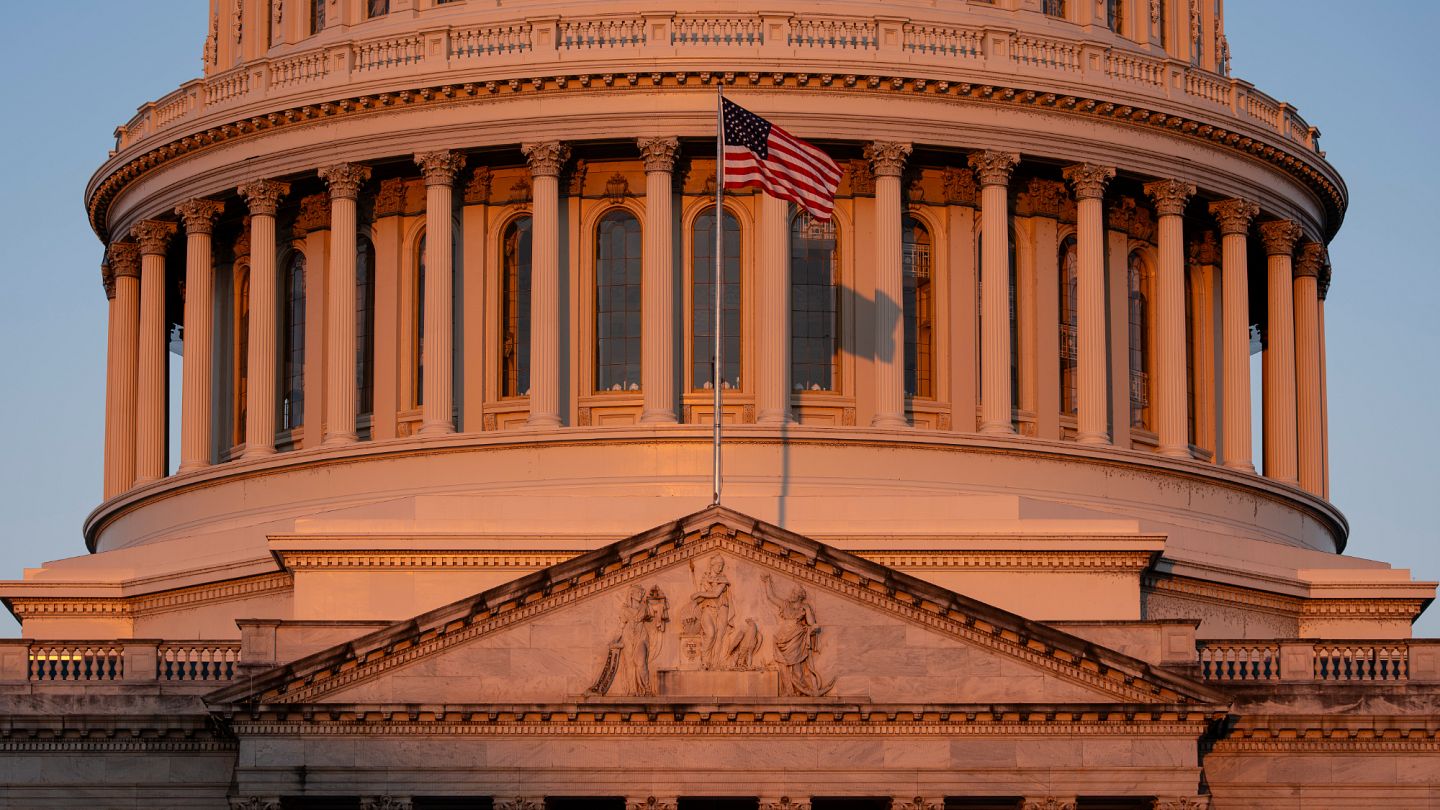Shutdown showdown: US government remains closed for now
In Washington, the US Senate on Monday evening failed to pass a short-term budget to keep federal agencies open. Legal experts suggest, Democrats have almost no chance of extracting real concessions from the Republicans.
The government crisis in the United States continues. On Monday evening, another shutdown vote in the Senate failed to get the necessary support of 60 votes as Democrats rejected the short-term funding measure passed by the Republican majority in the House of Representatives.Such a short-term measure, also called “continuing resolution”, would keep federal agencies open through November 21.As the shutdown enters its second week, Democratic and Republican leaders remained locked in a standoff about the way forward.It was not immediately clear what comes next. No tangible signs of negotiations have emerged between Congressional leaders since President Donald Trump met with them last week.On Monday, White House spokeswoman Karoline Leavitt said that Trump had spoken to Republican leaders in Congress, but not to top Congressional Democrats."His position is very clear,", she said. "There is nothing to negotiate."Meanwhile, Democratic minority leader Hakeem Jeffries criticized Trump for not seeking any conversations with the Democratic leadership.Speaking to reporters in Washington, he said the White House has gone "radio silent" since their last meeting and not spoken a single word to him or Democratic Senate minority leader Chuck Schumer.Trump threatens to start mass layoffsMeanwhile, the White House threatened to start mass layoffs of federal workers, trying to maximize the political pressure on the opposition.On Sunday, Trump was asked by reporters when the administration would begin laying off federal workers. Trump responded, without elaborating: "It's taking place right now."The White House’s Office of Management and Budget did not immediately answer a Euronews request for comment on whether this process has already begun.It would be a serious escalation in a fight that both sides are publicly confident they can win.Holding the absolute power in Washington (they control the White House, the Senate and the House in addition to a large conservative majority on the Supreme Court), Republicans refuse to give in to Democratic demands.They put the responsibility for the shutdown squarely on the Democratic doorstep.But for Democrats, the Republican funding measure is a partisan bill without their input – they want a negotiation in exchange for their votes.“We ought to be talking about the real issue here, which is that we have a health care crisis in America caused by the Republicans,” Senate minority leader Schumer said on CBS.Democrats demands concessions on health careThe central sticking point in the standoff is the Democratic demand to extend tax credits that have made health insurance more affordable for millions of people since the COVID-19 pandemic.These subsidies, which go to low- and middle-income people who purchase health insurance through the Affordable Care Act, are slated to expire in December.This would result in massive health insurance premium increases for people on “Obamacare”, as the Act is commonly referred to, unless Congress extends the subsidies.The Republicans wouldn’t commit to extending the Obamacare money, saying it’s a discussion they are open to having — but only if Democrats relent and reopen the government.Nobody is willing to budge.For Democrats, resistance to the Republican funding bill is the only leverage that is left to them – and a base-pleasing way to stand up to Trump.Back in March, the Senate voted for a similar funding patch with just enough Democratic support, Democratic voters across the country were furious. Chuck Schumer was heavily criticized and his leadership openly questioned.This time around, Schumer was almost left with no other option than to fight – a situation gleefully exploited by Republicans who believe they have the support of the public.But the Democratic leadership feels emboldened by several polls that suggest that more Americans blame the president and Republicans for the shutdown than the Democrats (Marist, CBS News-YouGov, Washington Post, NYT/Siena College).How long this polling advantage will hold, is anybody’s guess. For now, it’s giving Democrats at least some confidence in an otherwise gloomy political environment for them.Supreme Court just made a solution difficultThe reason for the gloom is the latest decision of the Supreme Court that could make it impossible to end the shutdown on Democratic terms.A few days ago, the justices handed down handed down an order “that could completely upend the balance of power between Congress and President Donald Trump”, according to Ian Millhiser, a legal journalist and author of The Agenda: How a Republican Supreme Court Is Reshaping America (2021).The ruling effectively permits Trump to cancel $4 billion in foreign aid spending that he is required to spend under an act of Congress.Trump had used a legally highly controversial “pocket rescission” when a president submits a request to Congress not to spend approved funds and the money goes unspent as a result.Trump’s move was attacked in court, but the Supreme Court eventually sided with the president.The decision by the conservative majority of the court suggests that, even if the parties in Congress reach a deal where Democrats get some of the health care spending they try to negotiate, “Trump can simply cancel that spending after the bill ending the shutdown is signed into law,” Millhiser wrote.“If he could cancel the foreign aid spending Congress authorized, as the Court just indicated he can, why couldn’t he cancel anything else the legislators agree to?”For Democrats, what’s the point of haggling for minor concessions from the Republicans majority when the Republican president can nullify them at will?In other words: How can Democrats sell small budgetary victories to their base, when they can’t even say with certainty that those little wins are real?Trump’s move, validated by the Supreme Court, could potentially throw into disarray efforts in Congress to pass a budget bill – with such a perspective, America might be in for a very long shutdown.


